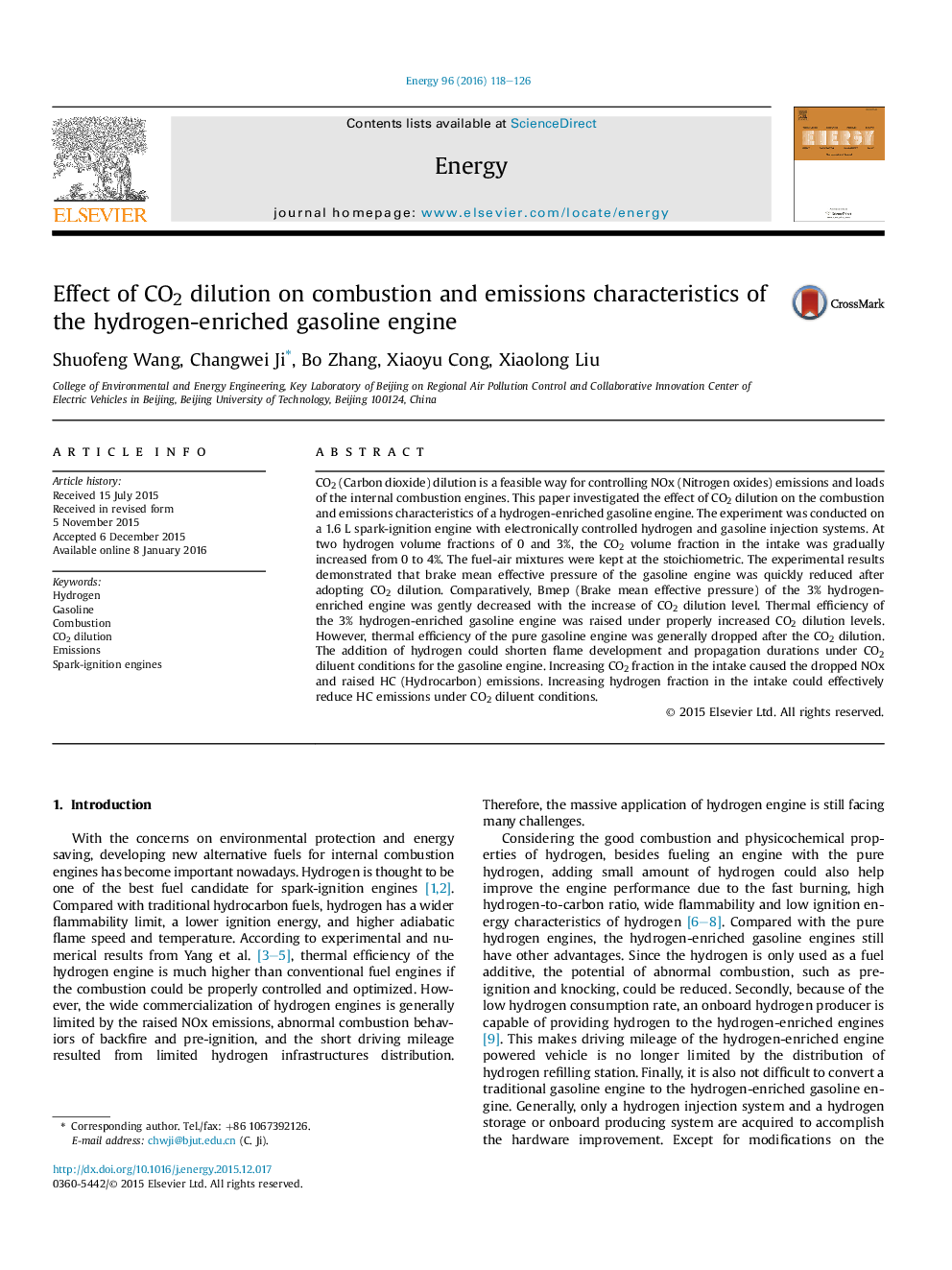| Article ID | Journal | Published Year | Pages | File Type |
|---|---|---|---|---|
| 1731253 | Energy | 2016 | 9 Pages |
•CO2 dilution reduces cooling loss and NOx of H2-enriched gasoline engines.•H2-blended gasoline engine gains better efficiency after CO2 dilution.•CoVimep of H2-blended gasoline engine is kept at low level after CO2 addition.•CO2 dilution has small effect on reducing Bmep of H2-blended gasoline engine.
CO2 (Carbon dioxide) dilution is a feasible way for controlling NOx (Nitrogen oxides) emissions and loads of the internal combustion engines. This paper investigated the effect of CO2 dilution on the combustion and emissions characteristics of a hydrogen-enriched gasoline engine. The experiment was conducted on a 1.6 L spark-ignition engine with electronically controlled hydrogen and gasoline injection systems. At two hydrogen volume fractions of 0 and 3%, the CO2 volume fraction in the intake was gradually increased from 0 to 4%. The fuel-air mixtures were kept at the stoichiometric. The experimental results demonstrated that brake mean effective pressure of the gasoline engine was quickly reduced after adopting CO2 dilution. Comparatively, Bmep (Brake mean effective pressure) of the 3% hydrogen-enriched engine was gently decreased with the increase of CO2 dilution level. Thermal efficiency of the 3% hydrogen-enriched gasoline engine was raised under properly increased CO2 dilution levels. However, thermal efficiency of the pure gasoline engine was generally dropped after the CO2 dilution. The addition of hydrogen could shorten flame development and propagation durations under CO2 diluent conditions for the gasoline engine. Increasing CO2 fraction in the intake caused the dropped NOx and raised HC (Hydrocarbon) emissions. Increasing hydrogen fraction in the intake could effectively reduce HC emissions under CO2 diluent conditions.
